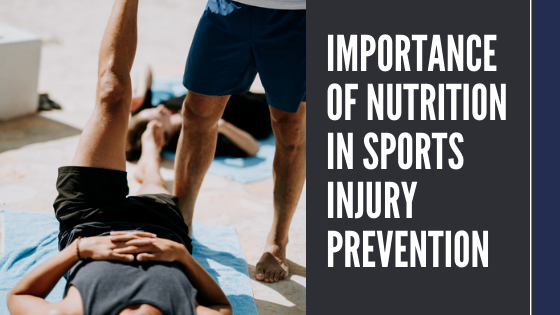


Sustenance and the food varieties you eat assume a significant part in forestalling and recuperating from wounds. Limiting muscle misfortune during injury recuperation can be affected to a great extent by the organization of your eating routine. Aggravation and weight of the board can likewise be ascribed to the supplement thickness of food sources you eat.
It is regularly ignored that competitors have expanded calorie needs that can go from 15-50% more calorie needs relying upon the seriousness of the injury. This implies expanded calories, more protein, and accentuation on micronutrients and cell reinforcements. As your body is working more enthusiastically to mend, it needs more energy through food varieties. That being said, your RMR (resting metabolic rate) is diverse during recuperation than it was previously. If calories are limited during recuperation, mending will be eased back on account of the negative metabolic results that meddle with wound mending. It is smarter to marginally overload a competitor during recuperation than it is to starve or undernourish them.
Muscle corruption is another regular outcome after wounds because of less preparation, being in a cast, and so forth, which is another territory where intentional nourishment can help in recuperation. Studies have shown that appendage immobilization can bring about muscle decay and loss of slender mass, which is the place where sustenance intercession comes in. Protein needs from great sources increment from being 1.2-2.0g/kg for competitors (or 0.8g/kg for the overall grown-up) to 1.6-2.6g/kg each day (higher for bigger competitors who accomplish more weight preparing versus a perseverance sprinter. As an overall suggestion, focus on about 2.2g/kg, which would be what could be compared to 1g of protein per pound of body weight. Try to consolidate leucine into the admission by burning through food varieties like meat, fish, eggs, dairy, and beans. Spreading protein admission for the duration of the day in 20-40g augmentations each 3-4 hours is ideal for assimilation and building.
Extra supplements that can be advantageous are creatine, omega-3s, nutrient C, nutrient D, and calcium. Creatine has a promising examination that it might assist with strength improvement and has been appeared to forestall a lessening in GLUT4 fixation during immobilization of the injury.
Omega-3s are generally enhanced during blackout recuperation and exploration upholds supplementation to help beat anabolic obstruction and irritation. Nonetheless, know about supplements around the hour of medical procedures if the competitor has effectively been taking fish oil.
Calcium and nutrient D go inseparably with bone wellbeing. Proof shows competitors are bound to get harmed when they are getting an insufficient measure of nutrients D. Nutrient D and calcium are both imperative to building solid bones and forestalling osteoporosis. There is acceptable information showing Vitamin D’s significance in forestalling wounds and stress cracks. Enhancing calcium may not be fundamental if you are getting an even eating routine with dairy and strengthened food sources. If you are additionally enhancing with iron, don’t take them simultaneously because calcium meddles with the iron assimilation.
But all these will come at a later stage. The first and the foremost thing that should be done to an athlete to make him injury-free is to do a blood test, gene test, food allergy test to determine what he or she needs, and last but not the least is to change an athlete’s psychology towards eating habits.
Ryan Fernando is an Award-winning celebrity Sports Nutritionist with 2GUINNESS world record and 2 Olympic medals under his belt. His client list include Olympic wrestler Sushil Kumar, cricketer Shikhar Dhawan & bollywood superstars Aamir Khan & Abhishek Bachchan. He is Chief Nutritionist at QUA Nutrition Signature Clinics.
©2023 All Rights Reserved Ryan Fernando. Designed and Developed by Floral Web Services